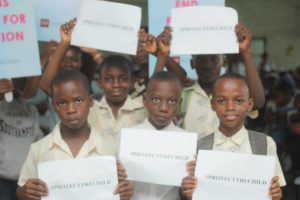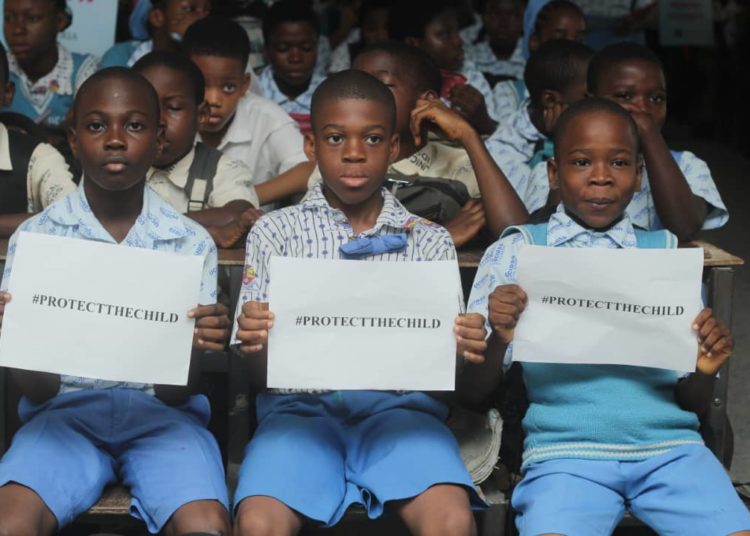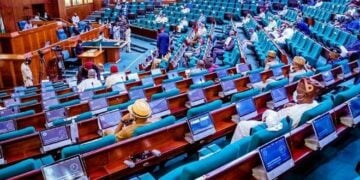To commemorate the International Day of the African Child 2022, AIDS Healthcare Foundation (AHF) Africa Bureau has launched a campaign tagged “#ProtectTheChild.”
The campaign is in response to the contention that plague conversations and implementation around Comprehensive Sexuality Education (CSE), mainly from governments, parents, teachers, and religious leaders because it is believed to encourage sexual activity.
This theme highlights the need for access to age-appropriate Comprehensive Sexuality Education as essential for preventing HIV, STIs and unplanned pregnancies among adolescents and young people across Sub-Saharan Africa.
In a press release made available to newsmen by AHF Advocacy & Marketing Manager, Steve Aborisade said, on the contrary, Comprehensive Sexuality Education has been proven to have immense benefits for young people’s health and overall well-being in spaces where they exist.
“According to a United Nations Population Fund (UNFPA) factsheet, which pooled findings from extensive research across the globe, including Sub-Saharan Africa, access to CSE decreased the number of young people engaging in sexual intercourse early and promoted positive attitudes towards sexual and reproductive health. Furthermore, it decreased risky behaviours and strengthened young people’s self-efficacy and knowledge to refuse unwanted sex, negotiate condom use, prevent HIV, STIs, and unplanned pregnancies and tackle harmful gender norms.

“Globally, we are faced with alarming rates of HIV, STIs and unplanned pregnancies among young people -exacerbated by the COVID-19 pandemic – which is indicative to a large extent of a gap in accurate knowledge, lifeskills and information,” said Dr. Penninah Iutung, AHF’s Africa Bureau Chief. “CSE is a fundamental part of the right to health and when we support the availability and accessibility to appropriate health-related information, we demonstrate a respect for young people’s rights to be informed, healthy and live in dignity, which are critical for individual and community well-being.”
He said AHF Africa will host various live and virtual activities across its 13 country programs to engage key stakeholders, community leaders, parents, teachers and young people on the importance of investing in CSE, and galvanise community support towards implementation in schools and communities.
“In Nigeria, on June 16, 2022, AHF Nigeria held an interactive session with pupils of Demonstration Secondary School, UNICAL, Calabar, where the essence of menstrual hygiene management was highlighted with the distribution of free sanitary pads to pupils. While on June 22, 2022, we shall be inaugurating a Community Committee on Comprehensive Sexuality Education at Agwan Jukun community, Walomayo, Makurdi South, Makurdi, Benue state as a model and pilot project to get community actors and gatekeepers involved in efforts to protect the child while guaranteeing their health, dignity and wellbeing, knowing fully well that access to comprehensive, age appropriate, sexuality education (CSE) empowers youth with the skills and tools necessary for them to make informed choices.
AHF Nigeria Country Program Director, Dr. Echey Ijezie in the statement said, “AHF Nigeria is committed to reducing HIV/AIDS, STIs and unplanned pregnancies among adolescents and, to do this, we realise that we must empower them with appropriate age-specific CSE to mitigate their vulnerabities and guard against irresponsible and unhealthy choices” said,
“The notion that implementing CSE programs encourages sexual activity or promiscuity is flawed and not grounded in science because evidence shows otherwise. Besides, CSE covers wide-ranging areas beyond sex that are vital for positive physical and emotional development, such as abstinence, gender equality, human rights, GBV, Sexual Reproductive Health, HIV and STIs, among others”, added Dr. Iutung.
“This campaign is timely and aligns closely with the Day of the African Child (DAC) theme of “Eliminating Harmful Practices that affect Children…” “It is our call-to-action to the African community on the need to work together to ensure that adolescents and young people everywhere have access to age-appropriate CSE that can empower them to make informed protective choices and meaningfully contribute to national development.”





